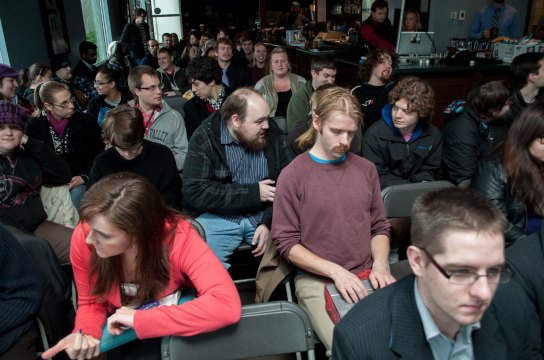Hi Nick,
I came across your editorial, “Fixing the gender gap in student gov’t” from volume 21 issue 6 of The Cascade, and had a few thoughts about it.
In the article, you make a strong statement against gender disparity, saying “The university should be a place where persistent inequalities are rectified, not reinforced”. Speaking about the Cascade, you mention that “[Women make up] 40 per cent. It’s not ideal, but we’re getting there”. You establish a gender disparity of 20 per cent (60 per cent male minus 40 per cent female) as passable, but improvable.
However, you also say that “the English Students Association is lightyears ahead, at 75 per cent women”. How is a 50 per cent gender disparity “lightyears ahead”? Gender parity is “an equal proportion of men to women”. However, your ideal seems to be “50 per cent or more women”. If society were to work towards your ideal, then in the long-term gender inequality will be just as it was when feminism started, albeit in women’s favour this time.
Having been moderately involved with SUS over my university career, I’m aware that SUS is somewhat exclusive (luckily they’re working to solve this). You mention that “the university’s female majority [feels] like outsiders where SUS is concerned”. I’d be interested to hear your examples of sexism from SUS, as their “private club” vibe seems inclusive of all genders to me.
You suggested that “SUS should host a workshop and information session for women interested in running for office”, but why can’t we just ask SUS to host a workshop for people? Gender imbalances will never end if we keep singling women out as needing extra help. Doing so belittles their abilities and worth, treating them as incompetents that wouldn’t succeed without special consideration. We need to stop trying to solve the gender imbalance with more gender imbalance, and just start treating all people like people, regardless of sex.
Derek Froese


